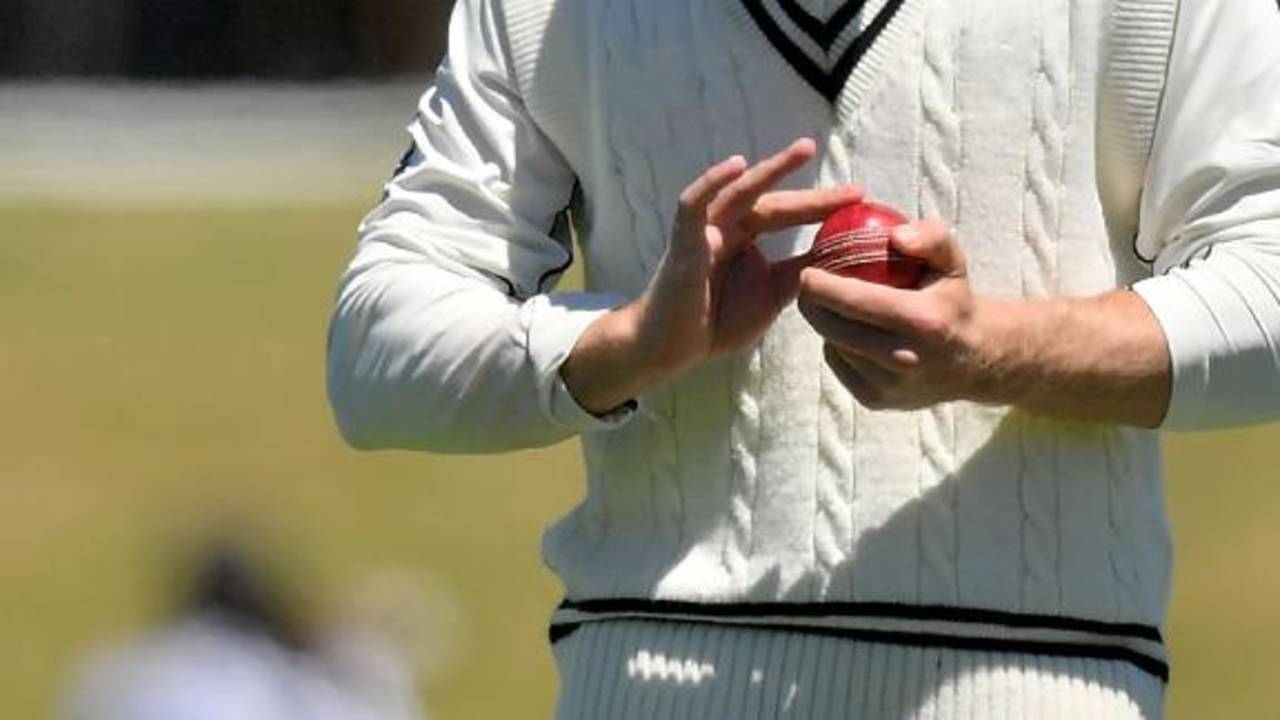It happened and we all missed it. They were together, but what were we doing? Too busy with our own vapid lives to notice. It was only for a few days, but through the back end of last week:
Dinesh Chandimal,
Faf du Plessis,
Vernon Philander, and
Dasun Shanaka were all within 10 kilometres of each other. Meaning, of course, that little old Colombo, with its tree-lined lanes, and bougainvilleas tumbling over garden walls, was home - if you can believe it - to the greatest concentration of convicted ball-tamperers ever seen on this planet.
What was it like? We can only imagine. Did these four men, bound eternally by clause 41.3 of the ICC's Test Match Playing Conditions, get together to share and sympathise? Might they have retired to a corner of one of those dim-lit Colombo restaurants, ordered up a round of ginger beers, and over a plate of devilled prawns, traded notes?
It is easy to see Chandimal and du Plessis bonding over their shared enthusiasm for sweets.
"You've got it backwards, Faf. It's strepsils on the Kookaburra and mints on the Dukes."
"The real trick, Chandi, is to put it into your mouth well before you get the ball in hand."
And what of the fingernail bros, Philander and Shanaka? Do they lean towards a certain brand of nail clipper? Could they, if they put their heads together, design an altogether more elegant and effective methodology? Maybe spark a revolution in the craft?
If you are a lawyer employed by any of these gentlemen you can stop reading here, because I apologise profusely and unreservedly, and will absolutely stop making fun the moment I get through these next couple of gags.
But it seems to me that these men, and cricketers like them across the planet, can feel a little aggrieved at what has happened to the tampering practice over the last few months. Ever since Australia unleashed their uncouth iteration on the planet, crassly using a building material to change the condition of the ball when one's own bodily fluids has sufficed for generations of purists, tampering has become a crime out of step with its actual impact on the game. Before sandpapergate, no player had ever been suspended for a Test over the offence. Now, the
ICC has made it punishable by a ban of up to six Tests, or 12 limited-overs matches.
It is not as if it had been this great a blight on cricket. There have been only eight cases of convicted tampering in the last 12 years, du Plessis bossing the leaderboard, having committed one quarter of those offences. Beyond the incidents that were caught on camera, there have been few accusations of tampering, even though reverse swing plays a role in the majority of Tests played.
On top of which even if players are attempting to change the condition of the ball, they don't seem to be particularly successful at it. The ball was
inspected at Newlands, but remained unchanged after Cameron Bancroft had had his way with it - the umpires stating that it remained suitable for play. At St. Lucia, where the
most-recent case of tampering emerged, umpires allowed Sri Lanka to continue bowling with a supposedly tampered ball, and only changed it after viewing incriminating footage the following morning. All this suggests that even after umpires have stared intently at a ball, tossed it around, passed it through their circular moulds, and stared some more (no umpire yet has taken to publicly tasting a ball to check for residue of sugary saliva), they can't consistently pick a tampered ball out of a line-up.
Ironic though
du Plessis' comments about increasing sanctions for tampering were, his concerns regarding the enforcement of those sanctions are worth considering. "The ICC has made the penalties a lot more strict, but they still haven't said what is allowed and what isn't allowed," he said ahead of this series. "Is chewing gum allowed? Is it not? Are you allowed mints in your mouth?" In addition: How long after having had a sweet in the mouth can someone apply saliva to it? Or can players no longer take these substances on to the field at all?
There is also no science to show that sugary saliva can even actually grant a bowling team an unfair advantage; all evidence, for now, is completely anecdotal. In ratcheting up the punishments, ICC has reacted swiftly to the outrage over sandpapergate - outrage that was more the result of decades of abrasive behaviour from the Australia side, than the act of tampering itself. Signs from the ICC are that tampering will continue to be policed largely based on the outrage it is capable of generating, with broadcasters heavily relied upon to first notice acts of tampering, then bring such footage to the match officials' notice.
Meanwhile, the likes of du Plessis, Chandimal and Philander are left to ponder what exactly tampering entails.

